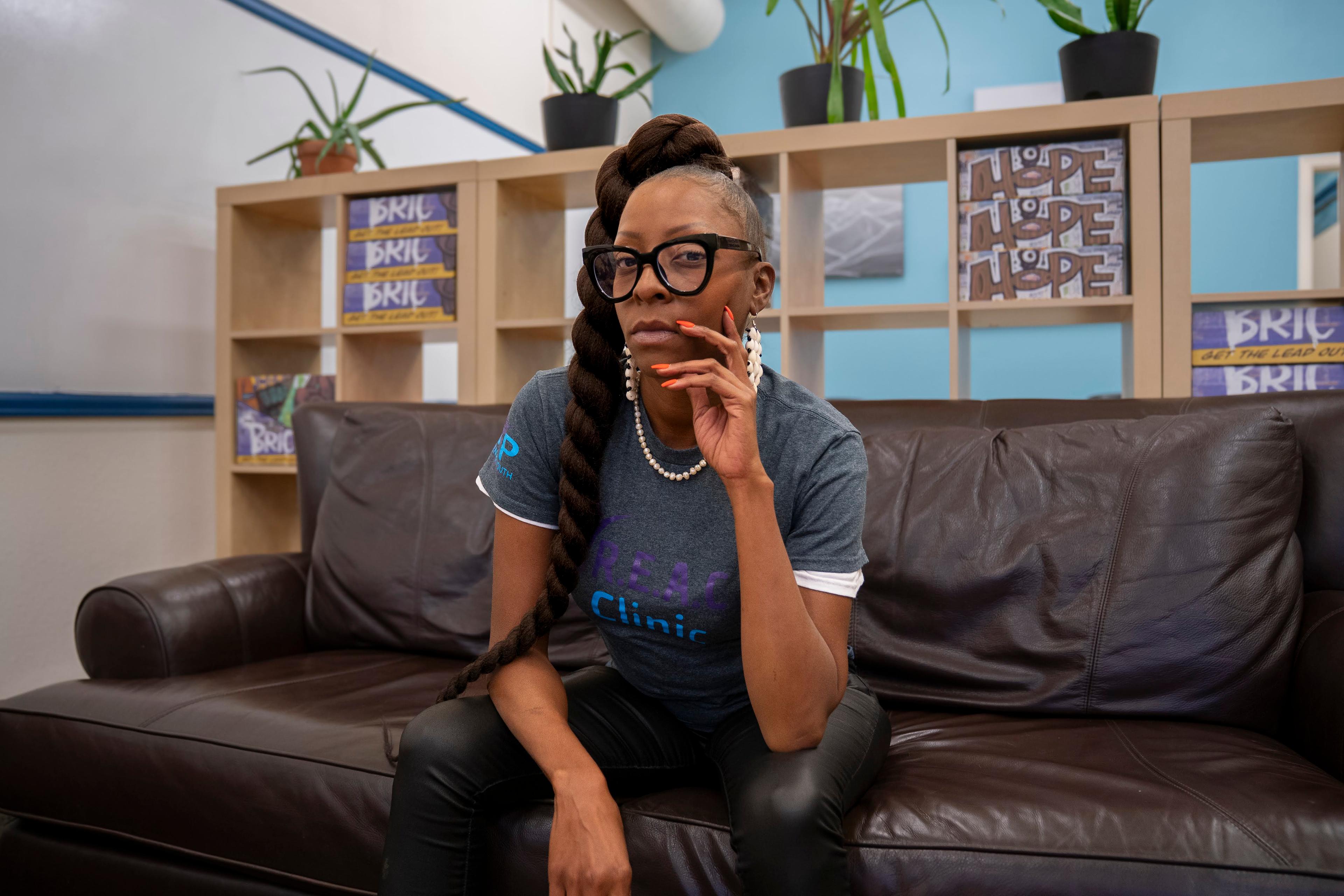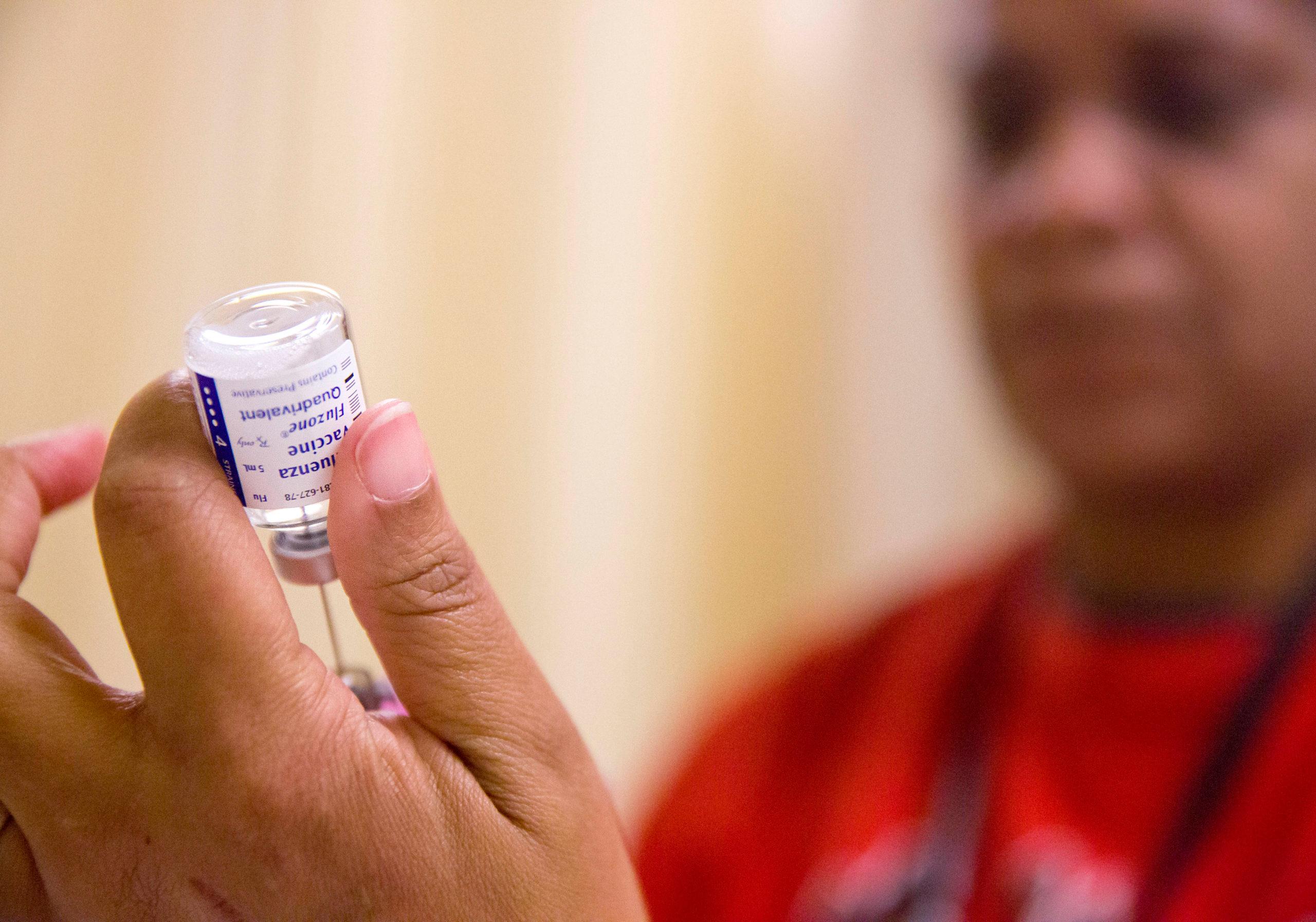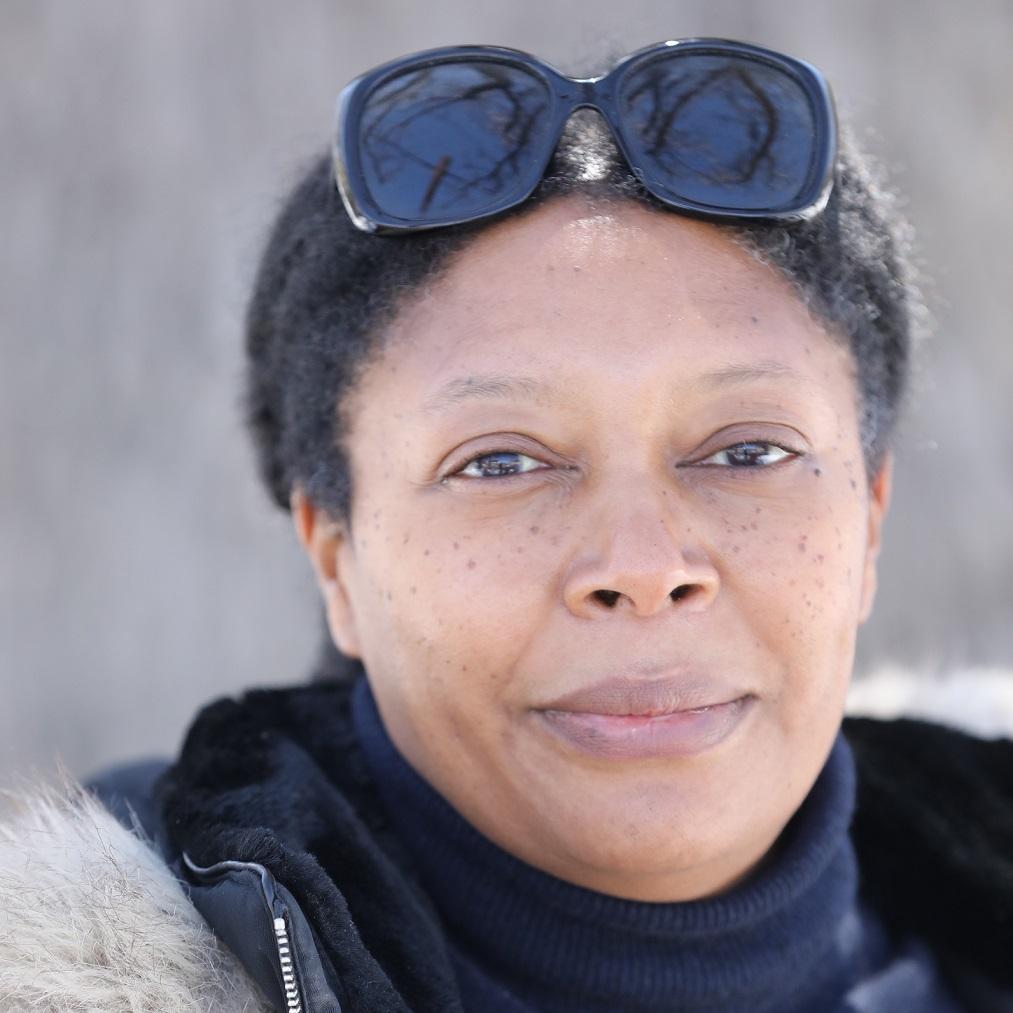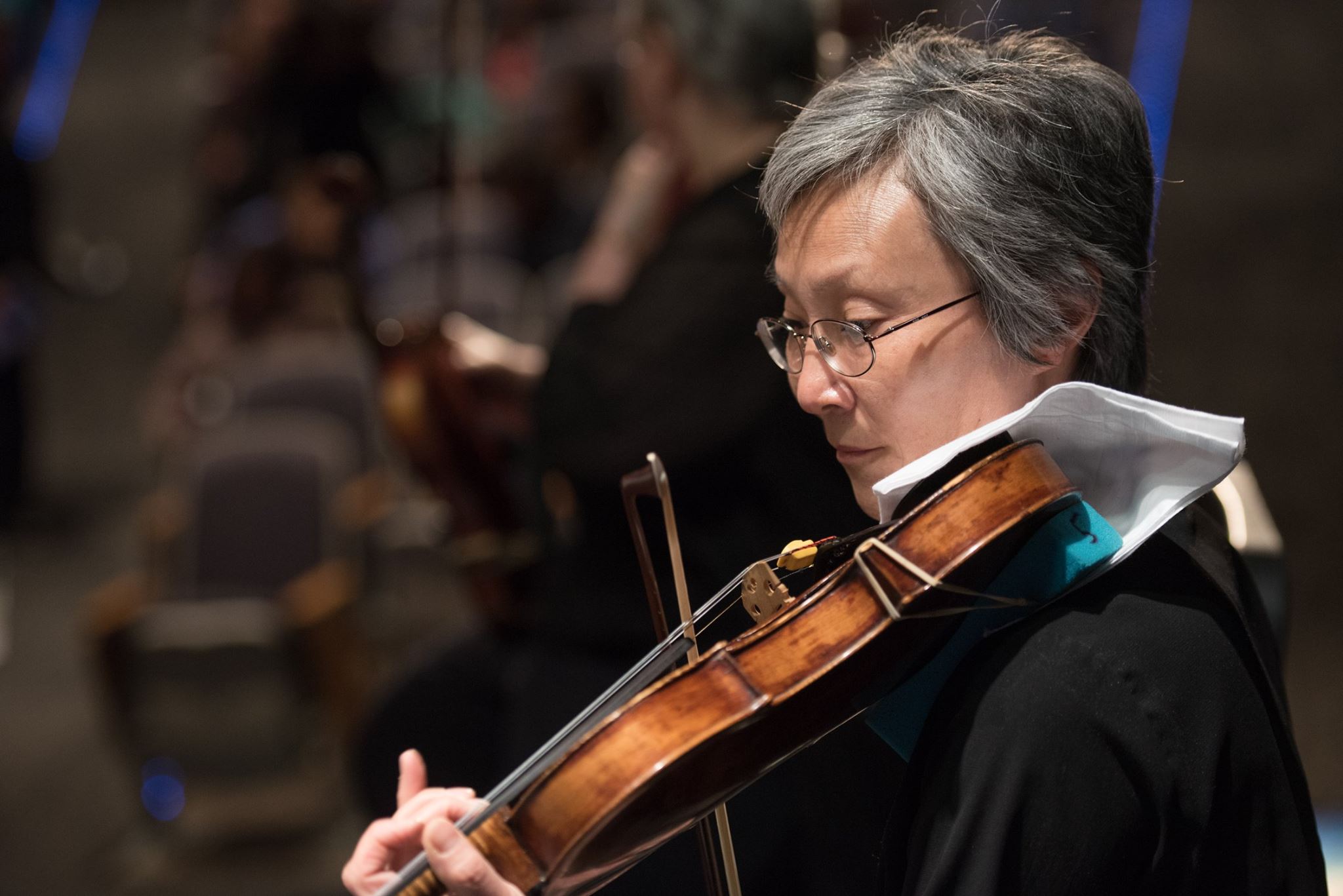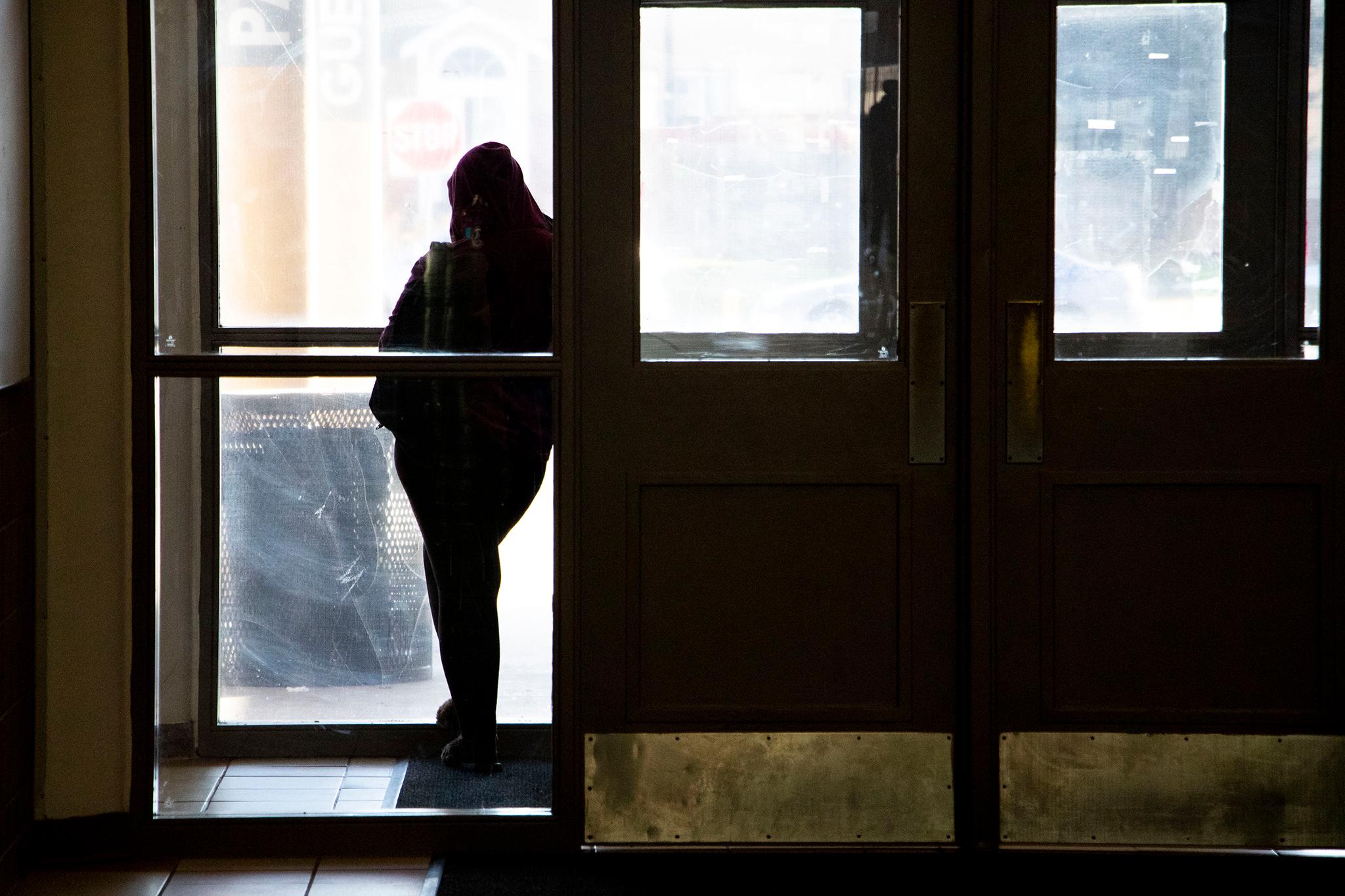
Trauma social worker Pamala Vaughn is gently braiding a student’s hair in her office.
It’s a moment to talk to the girl about her new foster home and the federal scholarships available to her at graduation. Vaughn exudes warmth and motherliness.
“It’s just for you, OK?”
The girl nods.
“I want you to take advantage of every opportunity, you hear me?” Vaughn softly chides.
Students are able to sit in Vaughn’s office that doubles as what she calls “The Peace Room” and just listen to the sound of the ocean. The room has calming lights, fidget items and a couch.
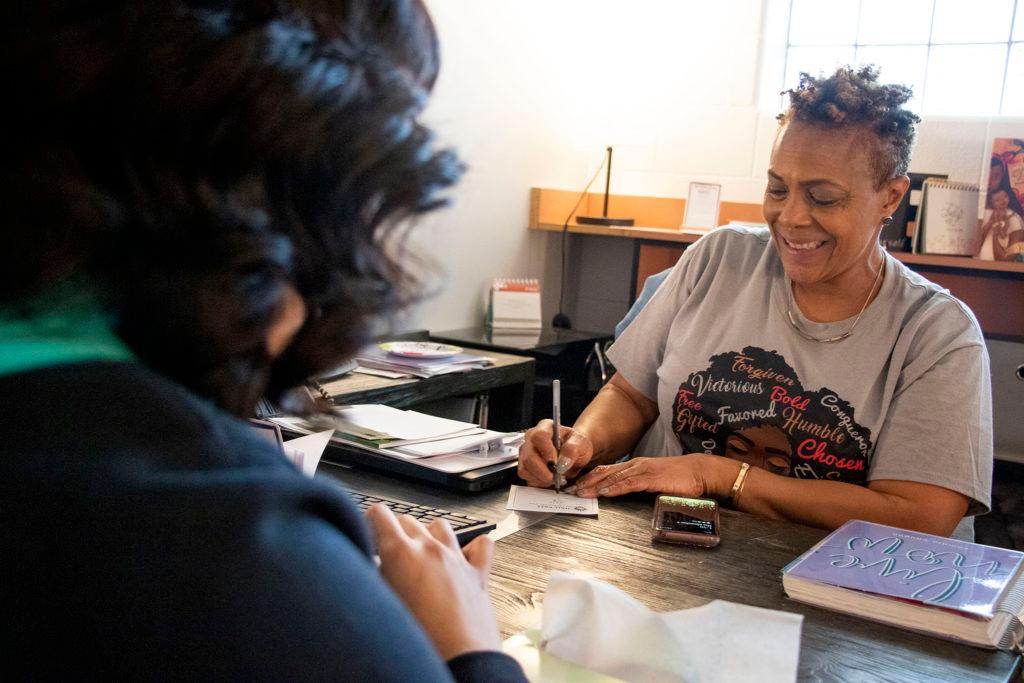
“It brings them to this place when they're going through something,” she said.
It’s not every school that views students’ emotional and social wellness as equal to academics. Dr. Martin Luther King Jr. Early College middle and high school leaders believe that unless students’ mental health needs are addressed, they can’t learn. The school’s robust set of wrap-around social and emotional supports along with a variety of academic paths earned the school a national Schools of Opportunity award last year.
School officials say they have worked hard to create a school that is psychologically healthy and where asking for help is OK.
“Our kids love to come into talk to us,” Vaughn said. “They look forward to it. They enjoy talking because of our personality, our genuineness, our compassion. It radiates out. And so our students, they can feel that. And so when they know who they can come talk to and they know, once they do, they're going to feel better. They're going to feel better.”
Teachers at DMLK are trained to prioritize kids’ emotional well-being.
Iris, a senior, has struggled with depression since elementary school and also has high anxiety.
“Just being able to just stand outside that door, you know, right out there (is stressful)," she said, sitting in the The Peace Room. “You know you can do it but it's just something is telling you like, ‘no, it's just like I can’t.”
Her mind races.
“You don't know how to calm down," Iris said. "It’s like, if you're running a race and then it's just like you start going and you can't stop.”
It’s hard to go to school — sometimes she’ll just sit in the parking lot — but she feels there’s always someone to talk to. Stigma about mental health is common in many high schools, something school counselors are trying to confront.
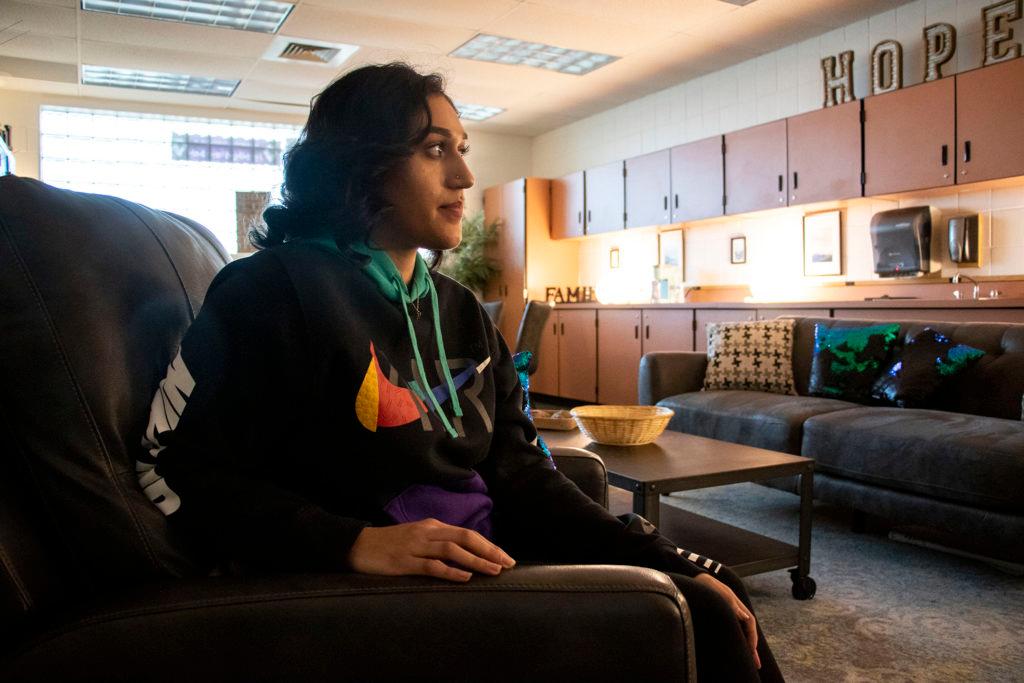
“Everybody’s going through something and I feel like everyone knows that in this school,” Iris said.
Vaughn said some students have been through significant trauma: a parent with severe mental health issues, sexual assault, physical neglect, abuse in the home, a mother who is dying, a dad who passed away.
Students in all schools may experience tragedies like this at home but many times, teachers see disruptive behavior or a kid refusing to come to class and they don’t know what’s behind it. Teachers at DMLK are trained to look for the signs. Vaughn says about 70 percent of kids are enrolled in one of the school’s many clubs or support services. In a district survey, students gave the school high marks in the categories of social and emotional intelligence and feeling supported.
Iris said when she went to her elementary school social worker, she felt she couldn’t be honest, that she had to keep stuff away from them. She even got that vibe from her doctor. She doesn’t feel that way at DMLK.
“They make it known that they care. They actually show it while someone else can be like, ‘Oh, we care.’ But they don't do anything to really show it. But they do, you get me, they reach out to you," she said.
If you need help, dial 988 to reach the Suicide and Crisis Lifeline. You can also reach the Colorado Crisis Services hotline at 1-844-493-8255 or text “TALK” to 38255 to speak with a trained counselor or professional. Counselors are also available at walk-in locations or online to chat.
Staff credit Principal Kimberly Grayson as the brainchild for so many of the ideas — like a therapy dog or classes for parents on raising teens or a yoga class.
Grayson arrived at Dr. Martin Luther King Jr. seven years ago when her son entered eighth grade. He graduated last year.
She said her lens shifted when her son experienced some trauma in his life. Grayson saw that his needs had to be addressed before he could focus and learn.
“Trauma has a direct impact on the ability to learn,” she said.
Grayson said she operates from the lenses of both a parent and an administrator.
“I look at all of the students as if they are my own. My own son going through trauma helped me to identify the other students in my building that are going through trauma," Grayson said. "What services and supports that my own son needed helped me to determine that all of my kids in my building need some form of assistance.”
The school has innovation status, which gives administrators greater flexibility in budgeting and diverse approaches to learning. With that, Grayson has prioritized mental health in the school’s budget.
The school has a full-time social worker, school psychologist, nurse, trauma social worker and speech pathologist. In addition, there is a full-time Denver Health Clinic located in the school with two therapists. There are also four school counselors, two deans of students and two restorative justice counselors, who help students resolve conflicts without resorting to suspension.
The school also has a therapy dog on campus three days a week and a Strengthening Families program for parents, tackling subjects like the importance of a family meal.
One study, published in the journal Pediatrics, found that kids who regularly enjoyed family meals were less likely to experience symptoms of depression. There are special leadership classes with “culturally relatable” content for African American students to increase engagement in school.
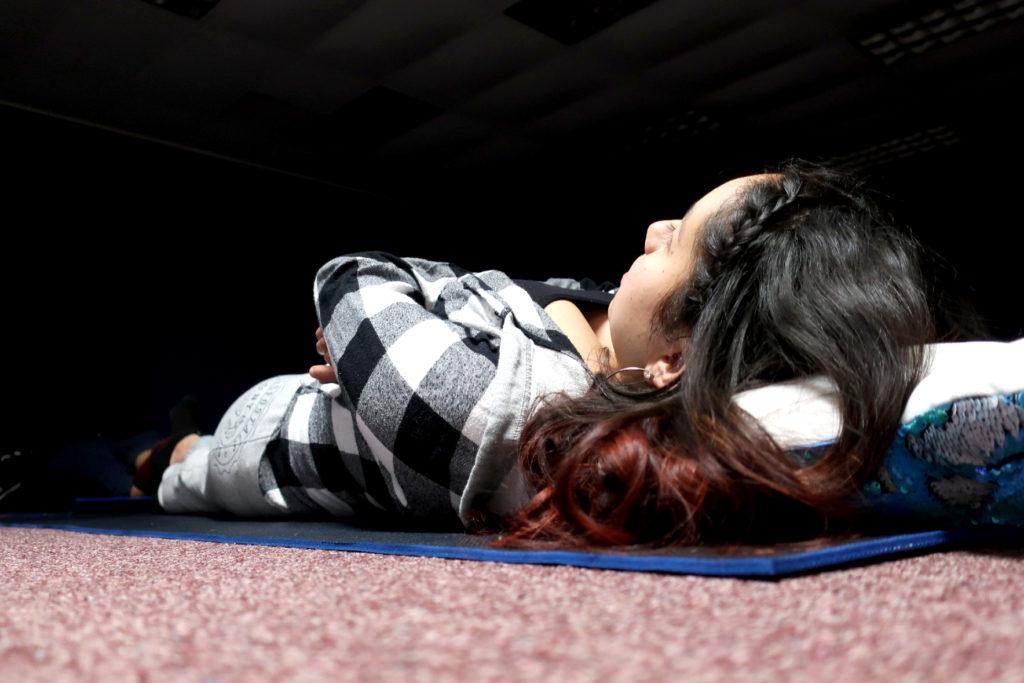
For the first time this year, there’s a yoga elective.
Instructor Tyisha Hall leads a roomful of girls in a series of stretches, reminding them to check their alignment and relax their neck and shoulders.
At the end of the class, the students grab blankets and pillows, lying on their backs as they Hall leads them into a mediation — Jhené Aiko’s “Trigger Protection Mantra” playing softly in the background. Several girls say the the class helps them.
“There is a lot of stuff going on in our lives and it’s good to take a breather and a pause to relax your mind and forget all about that,” said 12th-grader Ashanti.
Life as a teen is stressful, Ashanti said. To help relax, she's started to use what she’s learned in yoga class outside of school.
“When I get stressed out I breathe and I calm down and then I’m recharged and ready to go," Ashanti said.
Other girls in the class said it relieves stress and anxiety. They say teens rely too much on phones and social media, and constantly seeing images of girls “way prettier” than they are stresses them out, a freshman named Rena said.
“I don’t feel like they judge you in there,” Maria, a freshman, said.
“It’s peaceful," said another freshman, Abigail. “You feel comfortable in your surroundings. You can come as yourself. There’s no guys judging you. It’s just girls. That’s very helpful.”
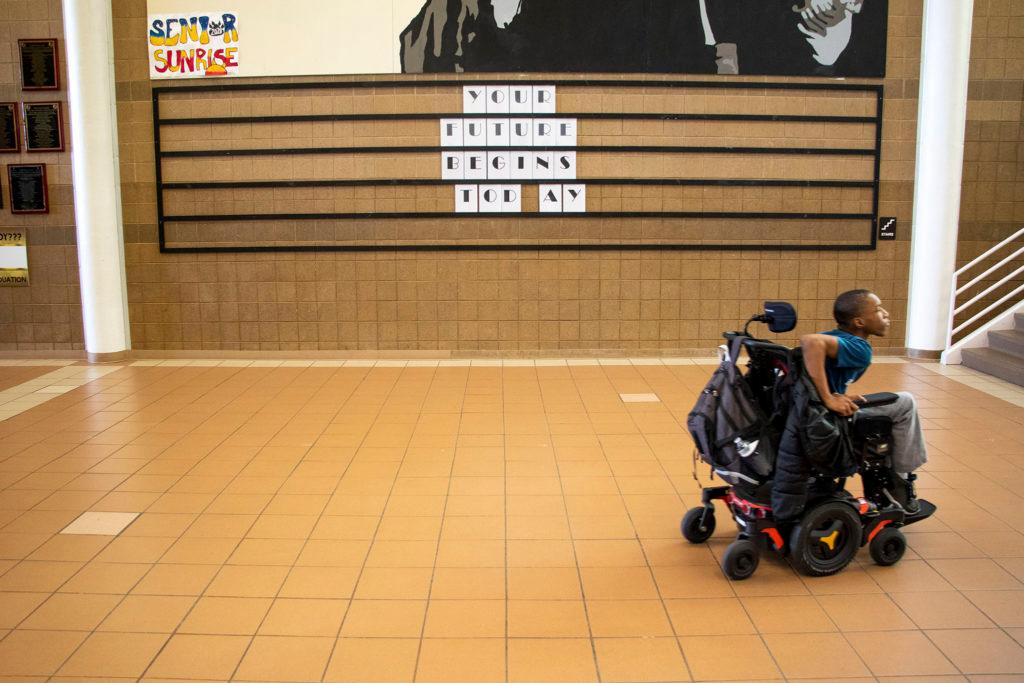
School officials have also worked hard to combat another widely-held stereotype that creates a lot of anxiety in students — that a four-year college degree is the only path to success.
For students who want that, DMLK offers more than 15 classes that give students college credit, as well as a fifth-year program to earn an associate’s degree for free while still in high school.
Counselor Sebrinia Welch said the programs give students a chance to test-run a college-level class in an environment where they are supported personally and emotionally.
One student taking the class was experiencing grief in his life.
“He was finding that in the quiet times his mind would move away from the work,” she said.
So, counselors worked with him on strategies to focus.
Other students learn that they need to work more on “executive function” skills — how to prioritize work and manage time. Welch often talks to kids in small groups about the differences in expectations between a high school and a college class.
But four-year college is not for everyone.
“Whenever I go in front of a student and talk about college, I'm not talking about four-year only," Welch said. "I'm talking about two-year certificate programs, apprenticeships and military, all of these different options that are available to them. There's a multitude of pathways that you can take that that ultimately will help you find that success.”
At DMLK, students can also follow a variety of career paths via engineering, manufacturing, information technology and business education pathways. The program involves paid internships over the summer.
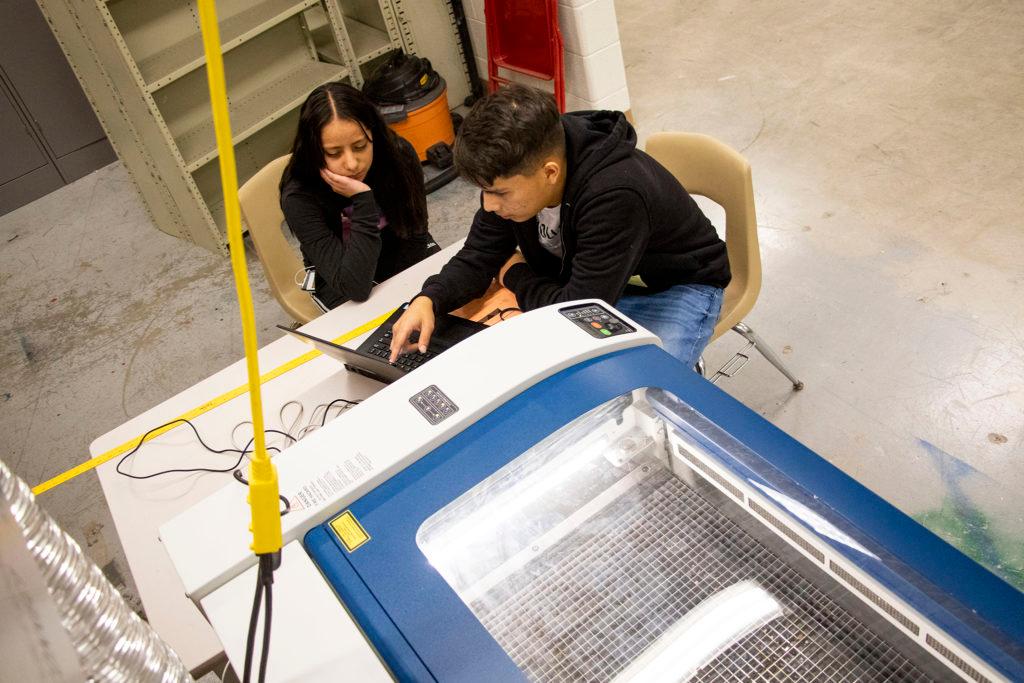
A good percentage of freshmen take at least one pathway class. Typically, when it comes to regular required classes, Welch gets a lot of requests from students wanting to switch out of classes. That doesn't happen as often with pathway classes.
“It's actually been really neat to see our students so young who chose something still be engaged this far into the semester,” Welch said. “I think they're really connected with the classes that they've chosen. The teachers are creating those relationships.”
Andy is working in an engineering class creating a project to operate in outer space.
“With this class, I feel like we're more treated as young adults than actual students,” Andy said. “Here we're doing like professional work. We're doing problems that engineers are working on.”
While Andy would like to go to college, that’s a stressful option for a lot of students — either the ones who aren’t interested in that path or who can’t afford it because scholarships are iffy.
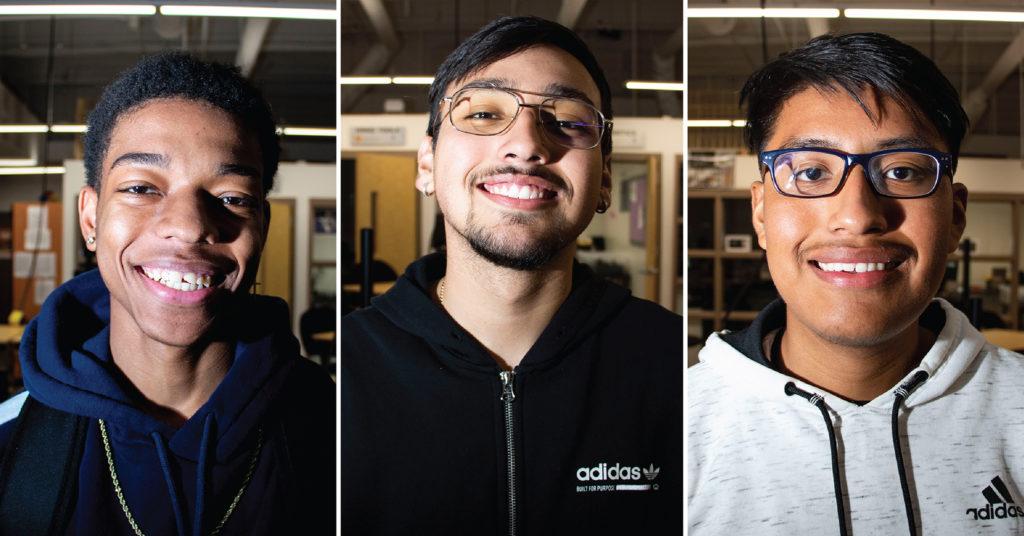
“I don't believe that GPA defines what you are and what you're capable of doing. So that's why I'm trying to find other ways instead of a four-year university to get into a good career that I would love to do,” his classmate Thomas said.
Thomas may go to college one day, but right now he’s got his eye on an Emily Griffith Technical College program in videography and photography.
“And it's only for 11 months. It's not like four years of stress, or like two years. So it's really quick and it puts me into a position to where I can get a job in that field pretty soon," he said.
Others say opportunities the companies they are interning with will allow them to see if they really like a field before embarking upon a costly degree.
Choice in classes is key to keeping students engaged and happy.
“If one thing isn't connecting, then we have multiple options for them to choose at a later point,” Welch said. “It doesn't pigeonhole them into one thing and only that thing for the rest of their four years of high school.”
We want to know more, and we hope you do, too.
CPR News will spend the next few months investigating the factors that have created the ultimate pressure cooker for some teens. We’ll go into their world through audio diaries, interviews, reflection and analysis. Most importantly, we’ll examine what teens, families and schools can do to let some of the pressure loose.
_


